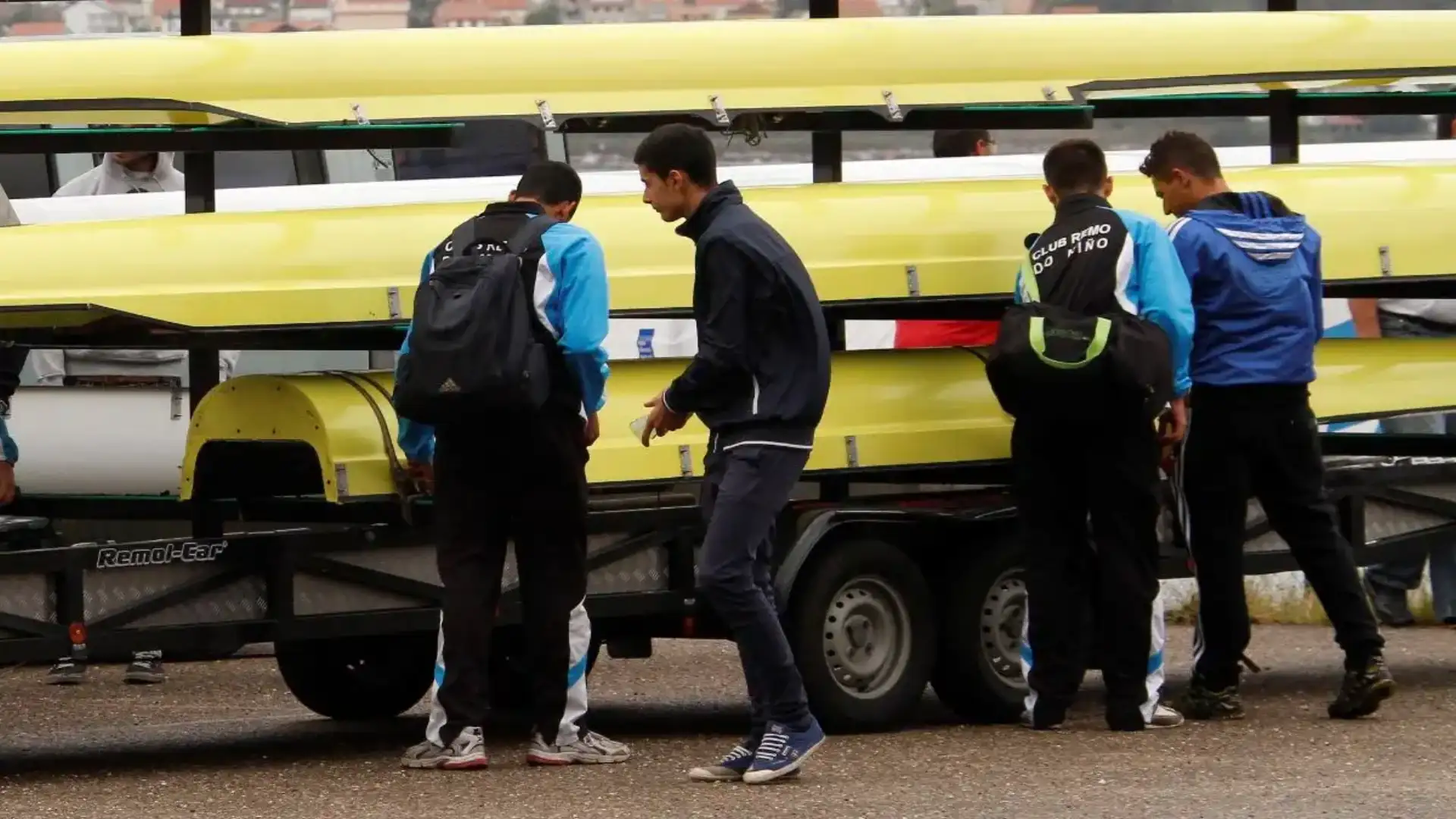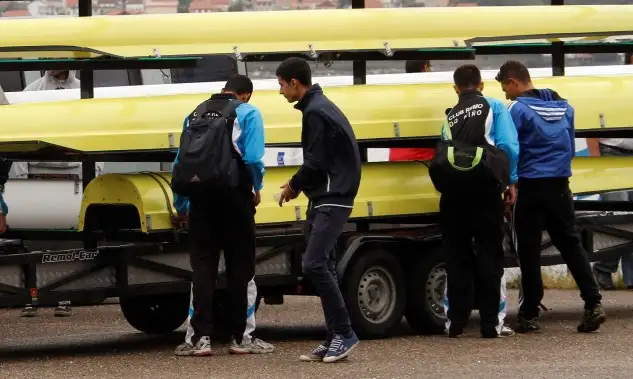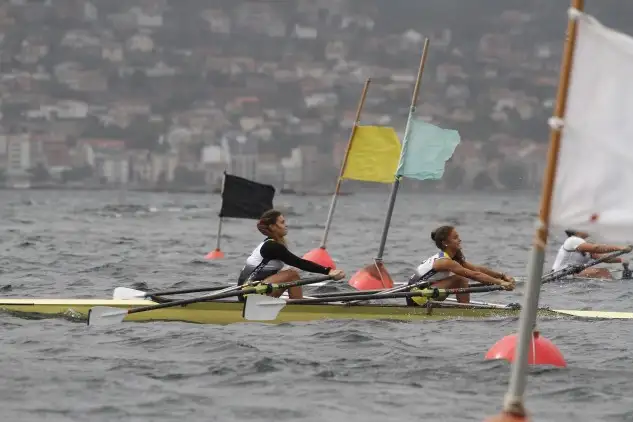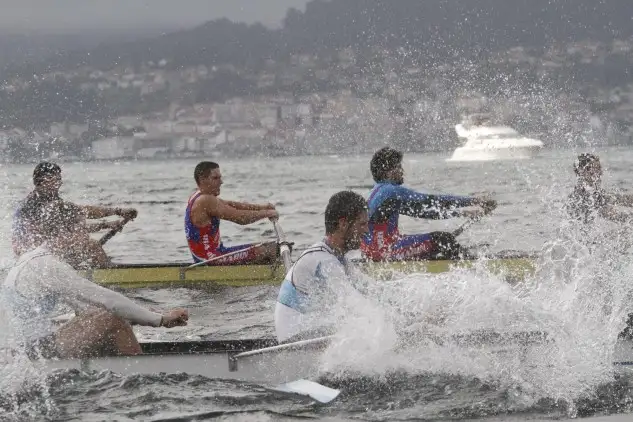
Abanca Week: The north-east causes the suspension of the Olympic Row Ence Cup
Abanca Week: The north-east causes the suspension of the Olympic Row Ence Cup

The Galician will agree with the Portuguese a new date, which will have to be before the end of the year (Photo Pedro Seoane)
It couldn't have been. The strong winds of the north-east that were at times over 20 knots and that did not fall from 13 to 15, have made it impossible to hold the tests of the Olympic Remo Ence Cup, which with the rank of the Iberian Cup in play, was expected to put the end and end of the Abanca Week on Saturday in the waters of the Pontevedra River.
First fifteen days ago the Ence Cup could not take place for reasons of traffic in the area, and this weekend with all prepared was the wind and a wave height close to half a meter high on the outside of the field... which gives precisely to the north-east of the Military Naval School and already outside the dikes of the Mass... which caused the suspension and postponement for another date.
The Olympic rowing boats are very sophisticated, light and with a franboard of a little more than ten centimeters, in addition to having a lot of length... which causes them to be extremely fragile. It is worth the fact that the Marin Maritime Captain allowed to compete with up to 15 knots and a wave of 0.50... and these conditions are already impossible for an Olympic rowing ship.
The aim of the Organizing Committee of the Abanca Week to take advantage of this fatal circumstance of the postponement in order to be able to have a wide participation of Portugal, which would place the Ence Cup at a very important level of participation, placing more than 300 the remers in the competition, more than twice those who had participated on Saturday because there was a match of the Mannese race with a heavy quote in the neighbouring country. This week the new dates of the Olympic Remo Ence Cup will be known.
24 / 11 / 2017: With the ENCE Cup of Olympic Remo is closed in Marín the week Abanca
The Olympic Remo Ence Cup ends the Abanca Week under the slogan "sailing & rolling" has been the reference of the nautical with competitions of sailing, piragüism and rowing. The forecast is that this competition with the Iberian Cup rank would have taken place two weeks ago, but various problems of an organizational nature advised this delay in programming, which is organized by the Galician Federation of Remo and the Club of Remo Ría de Marín, with the support of Ence and the Concello de Marín, among other institutions.
The competition will bring together just over 60 Olympic rowing boats with about 130 participants, in the youth, cadets, children and alevines categories (both male and female), who will represent several clubs in our geography, who will have in Marín very competitive expeditions such as the Tui Remo Club that has no less than 23 boats in competition, or the Royal Nautical Club of Vigo, the Remo A Robaleira Club of A Guarda or the host of the Remo Ria Club of Marín. They will be in competition skiff boats (with a remer), as well as double and four athletes, in all categories.

The basic support of ENCE so that Marin and the river of Pontevedra in general are a reference of the rowing (Photo Pedro Seoane)
The races will begin after the meeting of delegates that will take place at three o'clock on Saturday, and will consist of a total of 16 sleeves, which will end around five and a half in the afternoon, at which time the closing ceremony will take place at the Paseo Mayor Antonio Blanco of the Villa de Marín. More than two months of competition with more than two thousand athletes will have been put in the Rias of Baiona, Vigo, Marín-Pontevedra, Sada, Ares and A Coruña, as well as in the waters of Gijón and the Gran Porto.
© 2024 Nautica Digital Europe - www.nauticadigital.eu












